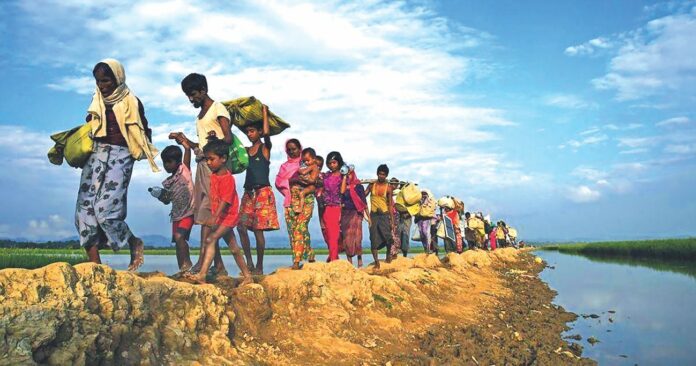On the occasion of World Mental Health Day, it is essential to recognize the unique mental health challenges that frequently confronts Migrants all over the world. According to the International Organisation for Migration (IOM) there was a global estimate of 281 million migrants in the world in 2020.
Migration is a difficult and life-altering voyage that can cause a variety of stresses, such as cultural adjustments, separation from loved ones, and uncertainty about the future. These factors can significantly impact the mental health of individuals and families who have chosen or been forced to leave their homes in quest of safety and opportunity.
Due to the numerous difficulties migrants face on their voyage, they are more likely to experience distress (e.g., feelings of anxiety and sadness, hopelessness, difficulty sleeping, fatigue, irritability, anger and/or aches and pains. Some studies show that the prevalence of such common mental disorders (e.g., depression, anxiety and post-traumatic stress disorder (PTSD)) is higher among migrants than among host populations.
According to The World Health Organisation (WHO) there is also consistent evidence that the incidence of psychoses is higher among migrant populations in a number of countries, and this has been linked with the cumulative effect of social disadvantages before, during and after migration. WHO has called for targeted mental health services for migrants. This is evident in the Comprehensive Mental Health Action Plan 2013–2030 by WHO.
World Mental Health Day 2023 is an opportunity for stakeholders to unite behind the theme ‘Mental health is a universal human right” to improve knowledge, raise awareness and drive actions that promote and protect everyone’s mental health as a universal human right. We therefore need a comprehensive, multi-disciplinary and inclusive approach to address the mental health needs of migrants.
In order to address the barriers to mental health care for migrants, we must recognize the significance of culturally sensitive and inclusive mental health services for migrants. These services should take into consideration the unique backgrounds and experiences of migrants and provide them with the necessary tools and resources to deal with the stressors they face.
We must also ensure the provision of clear information on mental health care entitlements and how to receive services (e.g., through reception canters, community outreach, schools, religious or cultural settings). Reach out to at-risk groups (e.g., unaccompanied minors, persons with disabilities) and facilitation of affordable and non-discriminatory access to care regardless of legal status, ensuring financial coverage of mental health services.
There is also the need to provide person-centred care that is respectful of cultural differences; and facilitating the engagement of multiple sectors and systems (e.g., law enforcement, protection, social services and education) to integrate mental health considerations and support and ensure referral and access to mental health services.
As we observe this year’s World Mental Health Day, Migrant Watch and Skilled Revolution Front (MWSRF) reaffirms its commitment to mental health education, creation of awareness and advocacy against social stigma to help make ‘mental health a universal human right’ in solidarity with this year’s theme for the day.







